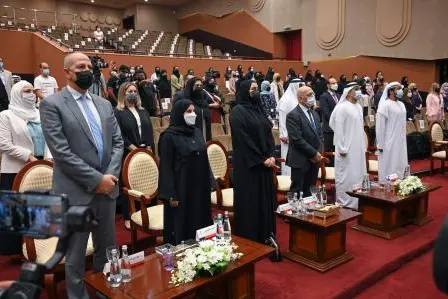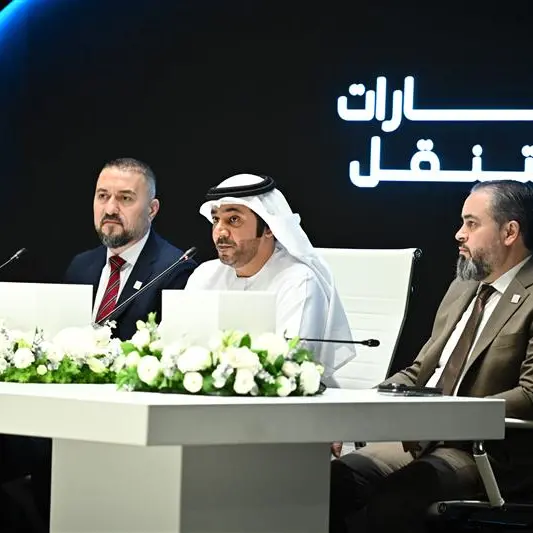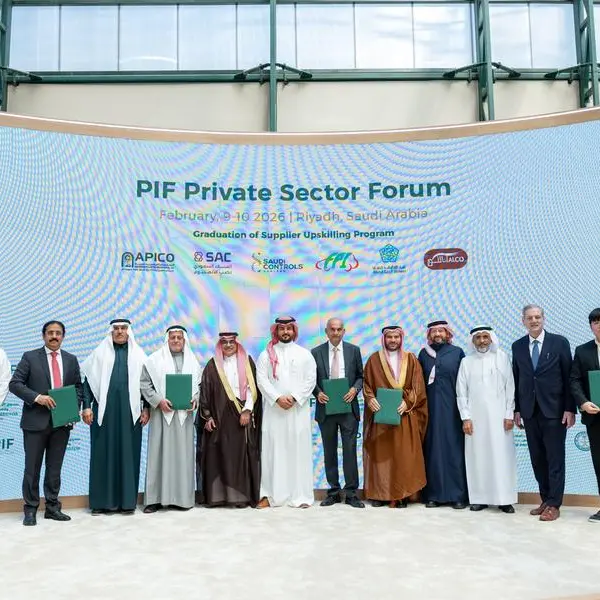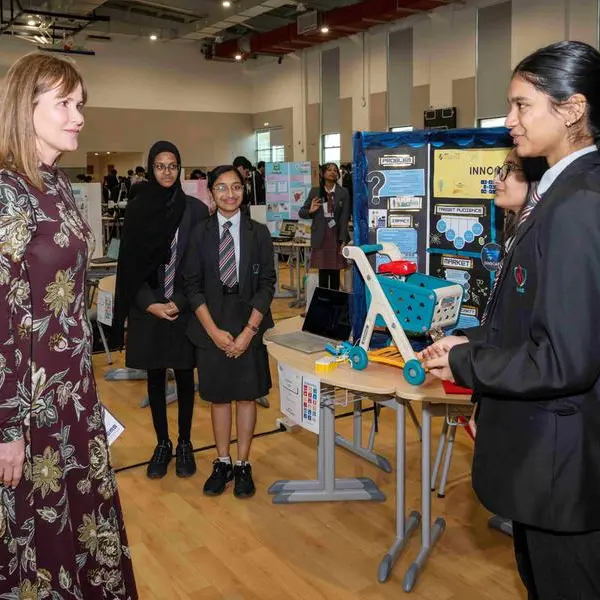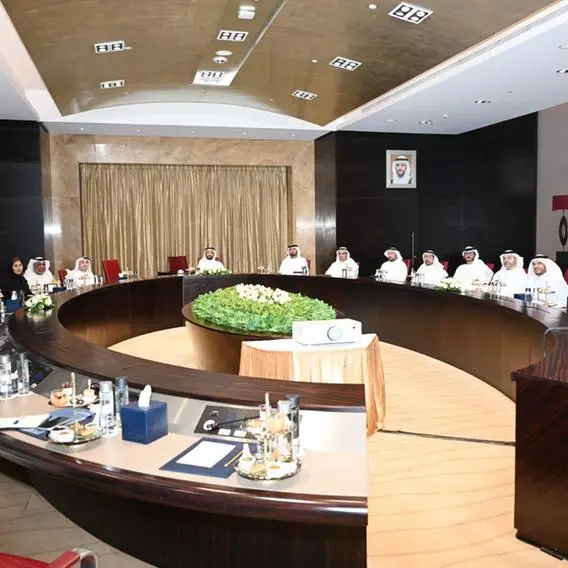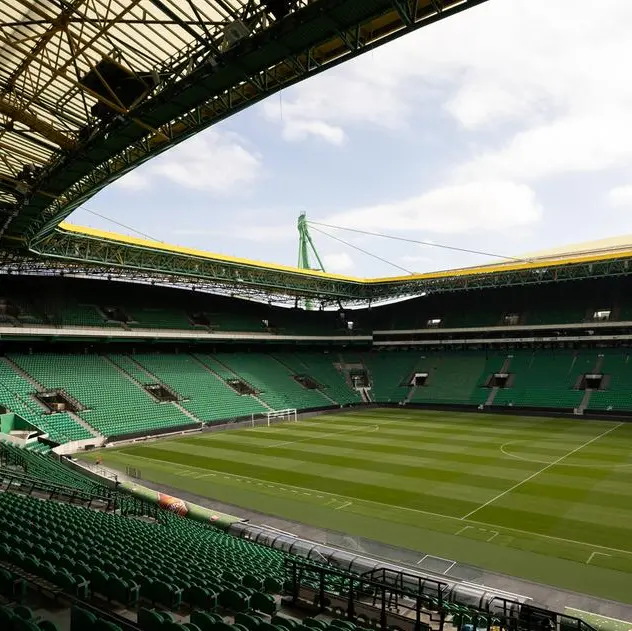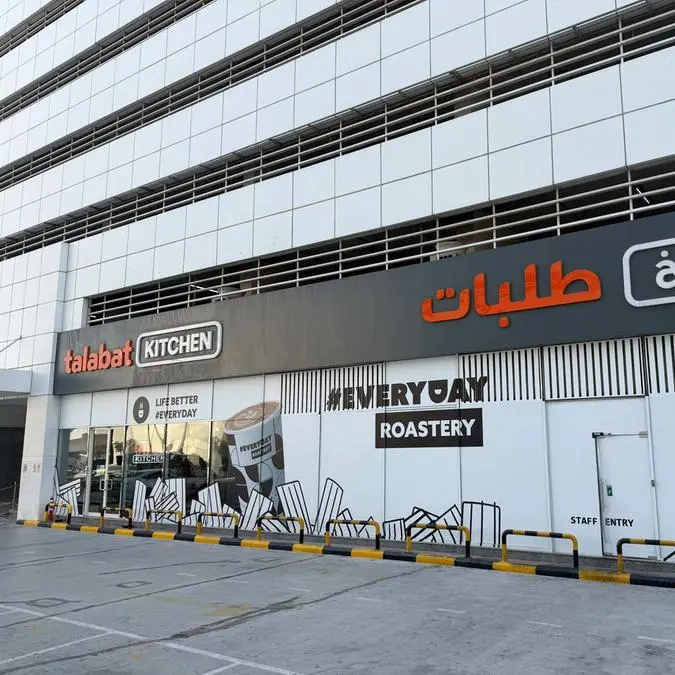PHOTO
- H.E. Dr. Jamal AlKaabi said: “The secret behind the exceptional and distinguished model that the UAE has applied to respond efficiently to the pandemic lies within the country's wise leadership that believed in us and supported our mission to overcome difficulties and prioritize the health and wellbeing of the society.”
Abu Dhabi: Under the patronage of H.H. Sheikha Fatima bint Mubarak Chairwoman of the General Women’s Union, President of the Supreme Council for Motherhood and Childhood and Supreme Chairwoman of the Family Development Foundation “Mother of the Nation”, Abu Dhabi University (ADU) and Abu Dhabi Health Service Company (SEHA), organized a seminar titled “COVID-19: the UAE Experience in Combating the Pandemic: Lessons Learned and Roadmap for the Future”.
The seminar took place at ADU’s headquarters in the capital and highlighted the UAE’s exceptional efforts in combating the COVID-19 pandemic and the most prominent initiatives launched by the emirate in this regard. The seminar also showcased a future roadmap towards recovery.
Reem bint Abdullah Al Falasi, Secretary-General of the Supreme Council for Motherhood and Childhood discussed the most prominent local and global initiatives that were launched by H.H. Fatima bint Mubarak throughout the pandemic, including the inauguration of the Sheikha Fatima Motherhood and Childhood Hospital in Nouakchott and Sheikha Fatima bint Mubarak Children's Hospital in Kosovo.
H.E. Al Falasi said: “We would like to convey our deepest thanks and appreciation to H.H. Fatima bint Mubarak and recognize her invaluable efforts during the pandemic.”
H.E. Dr. Jamal Mohammed AlKaabi, Undersecretary of the Department of Health – Abu Dhabi (DoH), said: “The difficult times that the world and the UAE have witnessed during the COVID-19 pandemic taught us many valuable lessons and pushed us to seize opportunities. We can summarize these lessons in three main pillars: the importance of ongoing preparation and readiness, remaining open to collaborations in different fields globally and internationally and enhancing the healthcare system to ensure better resilience and efficiency.”
H.E. added: “The secret behind the exceptional and distinguished model that the UAE has applied to respond efficiently to the pandemic lies in the efforts made to prioritize the health and wellbeing of the society, in addition to our readiness, ability to innovate and promote effective communication and teamwork. These achievements were possible thanks to the support of our wise leadership that provided us with the confidence and the strength we needed to overcome difficulties and achieve goals that will surely drive our country’s ambitions and consolidate the determination of its people in responding to the COVID-19 virus.”
H.E. assured that the wise leadership prioritized the health of senior citizens, residents and people suffering from chronic diseases through the launch of initiatives that provide the necessary aid during these difficult circumstances.
He continued: “Our capabilities to combat the pandemic were enhanced by utilizing artificial intelligence technology and the advanced digital infrastructure already employed in the healthcare sector. Through this, we were able to utilize "Malaffi", a platform that supports the national vaccination campaign in Abu Dhabi and provides a digital platform such as telehealth, which delivers remote health care services to community members. Using this service, individuals in need of medical support and guidance can receive medical consultations and medical prescriptions if needed."
Dr. Farida Al Hosani, Executive Director for the Infectious Diseases Sector at the Abu Dhabi Center for Public Health and official spokesperson for the health sector in the UAE, said: “We are proud of the healthcare sector's achievements during the COVID-19 pandemic. These were made possible thanks to the support and vision of our wise leadership in the UAE.”
Dr. Al Hosani touched on the role of the Abu Dhabi Public Health Center in supporting scientific research, monitoring the epidemiological situation and spreading awareness. She stressed that a focus on testing and vaccinating vulnerable groups was crucial, as it led to a decrease in the number of new cases and reduced mortality rates.
Dr. Nawal Al Kaabi, Chief Medical Officer at Sheikh Khalifa Medical City (a SEHA facility), discussed modern medical treatments and clinical studies during the pandemic. She highlighted that the UAE had adopted treatments that follow scientific studies after thoroughly reviewing their benefits. She underscored the importance of appointing a committee to enhance healthcare and services across the nation.
Al Kaabi stressed that treatment methods were reviewed periodically to ensure their effectiveness and to monitor patients' responses. This had a direct impact on the UAE maintaining a low mortality rate throughout the COVID-19 pandemic.
She added that the UAE ranks among the top countries that have conducted polymerase chain reaction (PCR) tests and facilitated easier access to examinations centers in efforts to curb the COVID-19 virus while still maintaining the quality and efficiency of care. It also provided treatment against COVID-19 for patients and members of society regardless of whether they are covered by health insurance or not.
Dr. Noura Al Ghaithi, Acting Executive Director of External Therapeutic Services (a SEHA facility), said: "During this crisis, the UAE was proactive in all steps needed to combat the COVID-19 virus. These steps included testing, treatment and vaccination. The nation's efforts were monitored applauded by several global entities, placing the UAE as one of the top countries in terms of successful pandemic response. Most recently, a report published by Economist Intelligence Unit’s Safest Cities Index 2021, rated the UAE as the second safest country in the world for the year 2021, and the city of Abu Dhabi as the safest in the world.”
She stressed further that one of the factors of success is active planning and communication between the public and private sectors in the country. Since its inception, the COVID-19 pandemic presented the world with a challenge when it comes to preparing and taking needed measures on time to ensure public health and safety. The UAE was able to implement an emergency response against COVID-19 to protect its citizens and limit the spread of the virus. SEHA and related healthcare authorities launched home delivery services where 338,000 prescriptions were delivered each month, and remote consultation services were accessible, through which 42,000 consultations were conducted each month.
Dr. Ali Saeed bin Harmal Al Dhaheri, Chairman of ADU’s Board of Directors, highlighted the importance of this event, which reflects the generous support of H.H. Sheikha Fatima bint Mubarak.
He said: “This event highlights the efforts given by the country to curb the COVID-19 virus. The wise leadership of the UAE brought forward a proactive strategy to overcome the repercussions of the pandemic and accelerated the possibility of going back to a similar lifestyle enjoyed post-COVID-19 in all social, academic, and professional spheres.”
“His Highness Sheikh Mohamed bin Zayed Al Nahyan’s, Crown Prince of Abu Dhabi and Deputy Supreme Commander of the UAE Armed Forces, words urging the people of the UAE not to worry will always resonate with nations due to its powerful effect. H.H.’s statement managed to reduce public panic and provide hope at times where desperation seemed to fill the air.”
Dr. Ali Saeed Bin Harmal Al Dhaheri, Chairman of ADU's Board of Directors, expressed his pride in the research and initiatives undertaken by faculty members and students who contributed to the first line of defence with medical products and helpful innovations.
Dr. Rania Al-Dweik, Assistant Professor of Public Health department at ADU, was a speaker at the UAE Higher Education Conference: Rising to the challenge. She shed light on how the education sector was greatly affected due to the limitations caused by the pandemic on students and campus capacity. Adding to that, UNESCO announcing the closure of schools and higher education institutions in 185 countries put further strain on the education sector, leaving around 1.5 billion students affected, which makes up 89.4% of all registered learners worldwide.
She highlighted that ADU dedicated approximately 50 million dirhams for scholarships and financial aid for the academic year of 2020-2021. This included financial support for students whose lives and education was affected negatively by COVID-19.
The University put forward tremendous effort to help limit the spread of the COVID-19 virus. The College of Engineering teamed up with Exxon Al Khalij (ExxonMobil) to boost the production of face clips for the medical sector. This was one of many initiatives put forward by ADU to help manage the spread of the pandemic.
-Ends-
About Abu Dhabi University:
Established in 2003, Abu Dhabi University (ADU) is the largest private university in the United Arab Emirates. With campuses across Abu Dhabi, Dubai, Al Ain, and Al Dhafra, the University has a total enrolment of 7,800 students from over 80 nationalities. Structured into Colleges of Arts and Sciences, Business, Engineering, Law and Health Sciences, ADU offers undergraduate and graduate programs across a wide range of disciplines.
Abu Dhabi University is recognized as a world-class institution committed to excellence in teaching, research and student experience, as evidenced by its prestigious regional and international accreditations. The University was the first private higher education institution in the GCC to earn international accreditation from the Californian Western Association of Schools and Colleges (WASC). ADU’s College of Business is accredited by the Association to Advance Collegiate Schools of Business (AACSB) and the prestigious EFMD Quality Improvement System (EQUIS). At a program level, the College of Engineering has received international accreditation from the world-renowned Accreditation Board for Engineering and Technology (ABET), and the Bachelor of Architecture has received Part 1 validation from the Royal Institute of British Architects (RIBA). The College of Health Sciences has earned accreditation from the Agency for Public Health Education Accreditation (APHEA).
According to the 2021 QS World University rankings, Abu Dhabi University ranked among the top 750 universities in the world and placed among the world’s top 150 universities under 50 years of age. ADU also earned a top 3 spot globally for international faculty and maintained its long-held position as part of the top 11 universities worldwide recognized for student body diversity.
Media Contacts
Weber Shandwick for Abu Dhabi University
Mohammad Azzam
malazzam@webershandwick.com
+971 2 449 4457
© Press Release 2021
Disclaimer: The contents of this press release was provided from an external third party provider. This website is not responsible for, and does not control, such external content. This content is provided on an “as is” and “as available” basis and has not been edited in any way. Neither this website nor our affiliates guarantee the accuracy of or endorse the views or opinions expressed in this press release.
The press release is provided for informational purposes only. The content does not provide tax, legal or investment advice or opinion regarding the suitability, value or profitability of any particular security, portfolio or investment strategy. Neither this website nor our affiliates shall be liable for any errors or inaccuracies in the content, or for any actions taken by you in reliance thereon. You expressly agree that your use of the information within this article is at your sole risk.
To the fullest extent permitted by applicable law, this website, its parent company, its subsidiaries, its affiliates and the respective shareholders, directors, officers, employees, agents, advertisers, content providers and licensors will not be liable (jointly or severally) to you for any direct, indirect, consequential, special, incidental, punitive or exemplary damages, including without limitation, lost profits, lost savings and lost revenues, whether in negligence, tort, contract or any other theory of liability, even if the parties have been advised of the possibility or could have foreseen any such damages.
